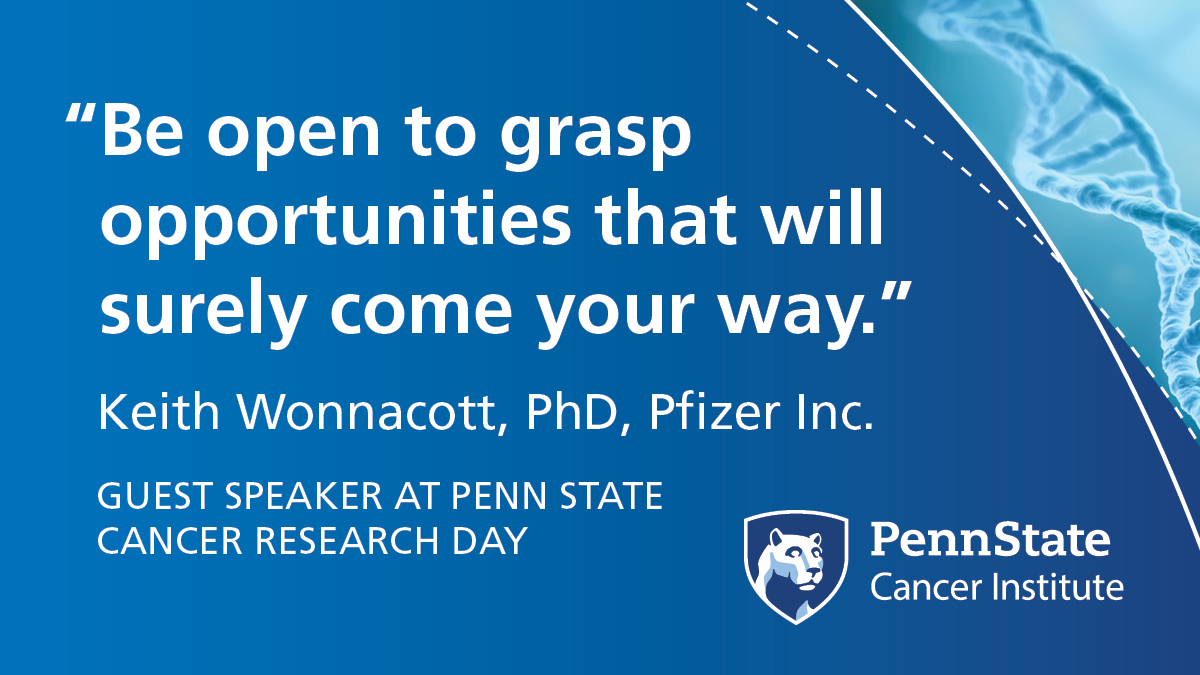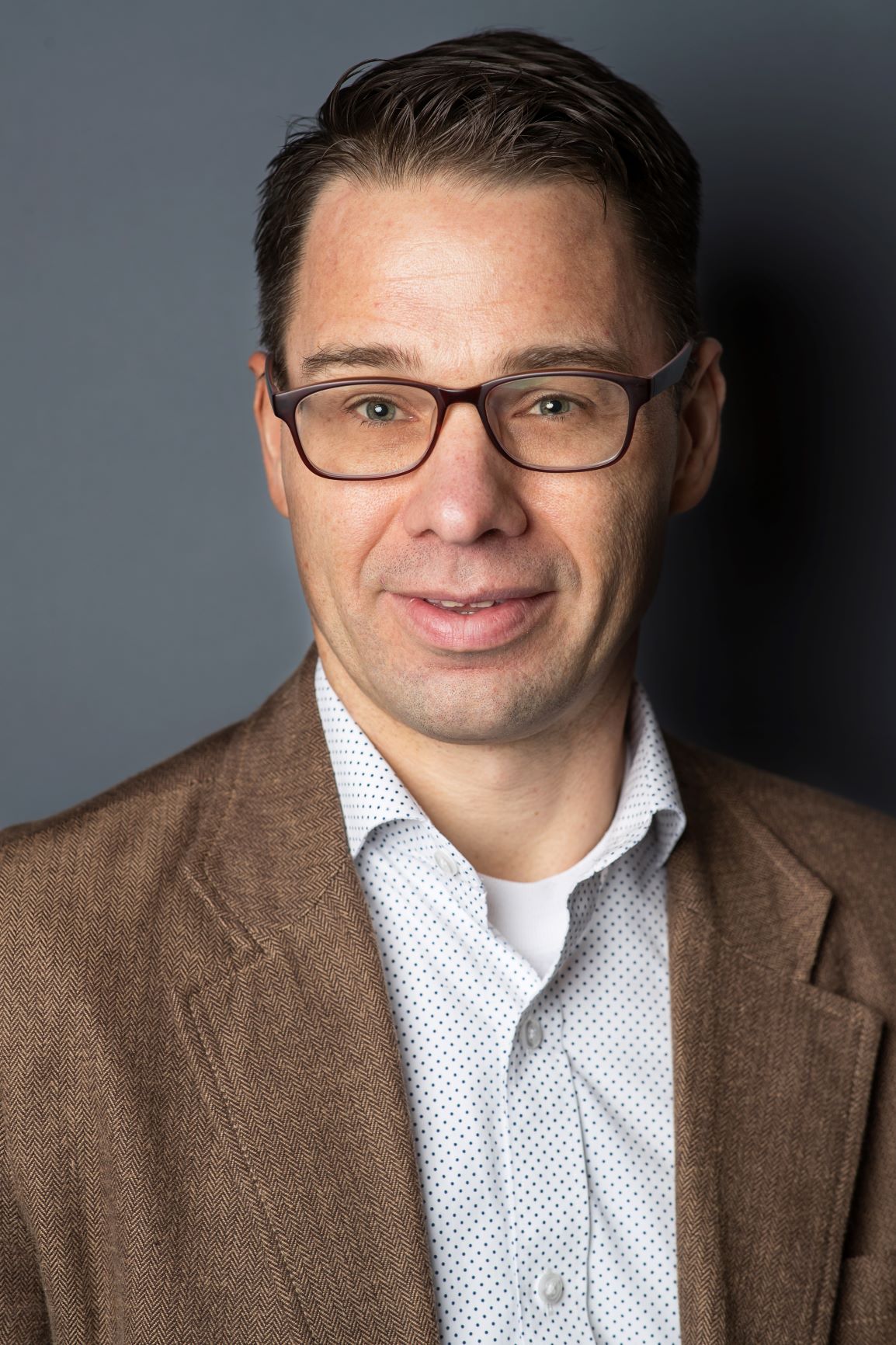Inspiring the next generation of cancer researchers: 2021 Penn State Cancer Research Day

Penn State alumnus Keith Wonnacott had simple advice for those attending Cancer Research Day: “Be open to grasp opportunities that will surely come your way.”
Wonnacott, executive director of Pfizer’s Regulatory Affairs, Rare Diseases Unit, was a speaker at Penn State Cancer Institute’s (PSCI) fourth annual Cancer Research Day, held remotely on Oct. 2. He said he has found unexpected opportunities during his career, in large part because he spends time learning about new things all the time.

Keith Wonnacott
Wonnacott earned his PhD in the laboratory of the late Dr. Robert Bonneau, a professor of microbiology and immunology at Penn State College of Medicine. He told participants to find joy in research, share what they learn, strive to be leaders and help others become great in their jobs.
The Cancer Research Day event was open to all Penn State students, trainees and faculty who are interested in cancer research careers. For the second year in a row, the program was held remotely with 106 attendees, of which 65 were students and postdoctoral scholars.
Kristin Eckert, PSCI associate director for Cancer Research Training and Education Coordination, said the goals of the event are to highlight the research of PSCI trainees from all disciplines, provide information about careers in cancer research and build a PSCI trainee community across Penn State.
The keynote speaker was Dr. Dan Theodorescu, director of the Samuel Oschin Comprehensive Cancer Institute at Cedars-Sinai Medical Center. He told the audience that sometimes personal factors come into play in career decisions. One of the reasons he chose to dedicate his career to cancer research was because a favorite aunt died from the disease. He described his current research regarding the molecular changes arising in different forms of bladder cancer.
Mentoring is critical for trainees, he said, adding that role models were critical to helping him decide on his research focus.
Spotlight on student research
Cancer Institute trainees presented their research through live Zoom oral presentations. Graduate students Madhuri Dey, Vladimir Khristov and Tanay Thakar presented their basic and translational research focused on improving cancer detection and drug screening methods and identifying new targets for improving chemotherapy. Graduate student Linh Tran discussed her analyses of a woman’s out-of-pocket expenses on subsequent mammography screening.
Medical students Brittney Calatayud and Nicholas D’Alonzo discussed their research examining variables that impact cancer screening and the WISER breast cancer survivor trial, respectively. An additional 19 graduate students, medical students and postdoctoral scholars presented their research at interactive poster breakout sessions.
Mapping the future
Jong Yun, associate professor of pharmacology, was one of eight faculty who gave students and trainees advice during one of the four career panel breakout sessions.
He said undergraduate students should stay well-rounded so they can stand out, and they should find a mentor in an area that interests them most. He also told students to have continuing conversations with researchers and people who work in labs as they map their future. Of great importance, he said, is fully understanding and enjoying the topic they decide to study.
“Be able to talk about the research you have done, the science of it,” he said.
Affiliate membership
Penn State students and trainees who are performing cancer research are eligible to become affiliate members of the PSCI. Applicants can choose to be aligned with one of the PSCI scientific programs and disease teams. Those interested in the affiliate membership should visit the membership website.
To to see a recording of Wonnacott’s presentation from Cancer Research Day, contact Tonya Krushinsky at tlh203@psu.edu.
If you're having trouble accessing this content, or would like it in another format, please email the Penn State College of Medicine web department.
